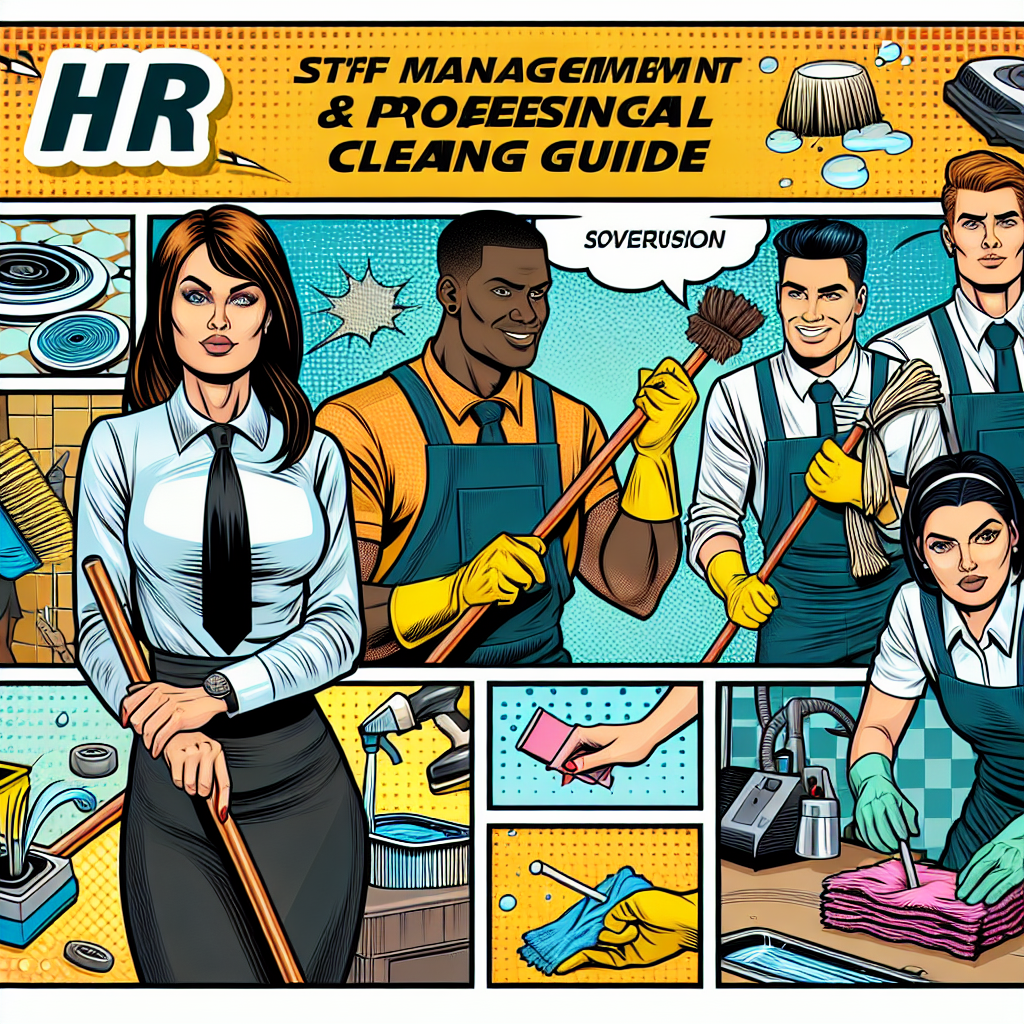In the cleaning industry, resolving staff conflict is essential for maintaining team morale and productivity. Learn how to address conflicts proactively by fostering open communication and understanding the root cause of disagreements. Encouraging collaboration among team members can lead to mutually beneficial solutions and stronger relationships. Implement conflict resolution strategies by practicing active listening and organizing team-building activities to create a positive work environment. By following a step-by-step guide, cleaning professionals can effectively mitigate staff conflicts, ensuring a harmonious workplace conducive to excellent service delivery. Start fostering a more positive work environment today by implementing these valuable techniques for conflict resolution in your cleaning team.
Staff conflict can disrupt the harmony of a workplace, affecting team morale and productivity. In the cleaning industry, where teamwork is crucial for excellent service delivery, resolving conflicts among staff members is paramount. By following a step-by-step guide, cleaning professionals can effectively address and mitigate staff conflict, fostering a more positive work environment.
Addressing Conflict Proactively
Address conflict early on to prevent escalation. Encourage open communication among team members to create a culture of transparency and trust.
Understanding the Root Cause
Before attempting to resolve conflict, it's essential to understand the underlying reasons behind it. Take the time to listen to each party involved and identify the root cause of the disagreement. This step is crucial for finding a lasting solution.
Practice active listening to ensure that all perspectives are heard and considered. Avoid making assumptions and focus on gathering information from all parties involved.
Encouraging Collaboration
Foster a collaborative environment where team members work together towards a common goal. Encourage staff to find mutually beneficial solutions and compromise when necessary. Collaboration can help build stronger relationships and prevent future conflicts.
Organize team-building activities to enhance communication and teamwork among staff members. Building strong interpersonal relationships can reduce the likelihood of conflicts arising.
Implementing Conflict Resolution Strategies
When conflicts arise, it's essential to have clear strategies in place for resolution. Train staff on conflict resolution techniques and provide them with the tools to address disagreements constructively. Effective conflict resolution can lead to stronger team dynamics and improved morale.
Encourage staff to focus on the issues at hand rather than personal differences. Emphasize the importance of finding common ground and working towards a solution that benefits everyone involved.
Seeking Mediation When Necessary
In cases where conflicts persist or escalate, consider seeking mediation from a neutral third party. Mediators can help facilitate discussions, clarify misunderstandings, and guide staff towards finding mutually agreeable solutions. Mediation can be an effective tool for resolving complex conflicts.
"Mediation can provide a neutral and impartial perspective, helping parties in conflict to communicate effectively and reach a resolution."
Remember that conflicts are a natural part of any workplace. By addressing them proactively and implementing effective resolution strategies, cleaning professionals can build stronger teams and create a more harmonious work environment.
By prioritizing open communication, understanding root causes, encouraging collaboration, implementing conflict resolution strategies, and seeking mediation when necessary, cleaning professionals can navigate staff conflicts successfully and promote a positive workplace culture.
Tags:
workplace conflict
staff conflict resolution
team morale
cleaning industry
conflict management
teamwork
productivity
positive work environment
About the Author
Admin User -
Professional cleaning industry expert with over 45 years of experience.



